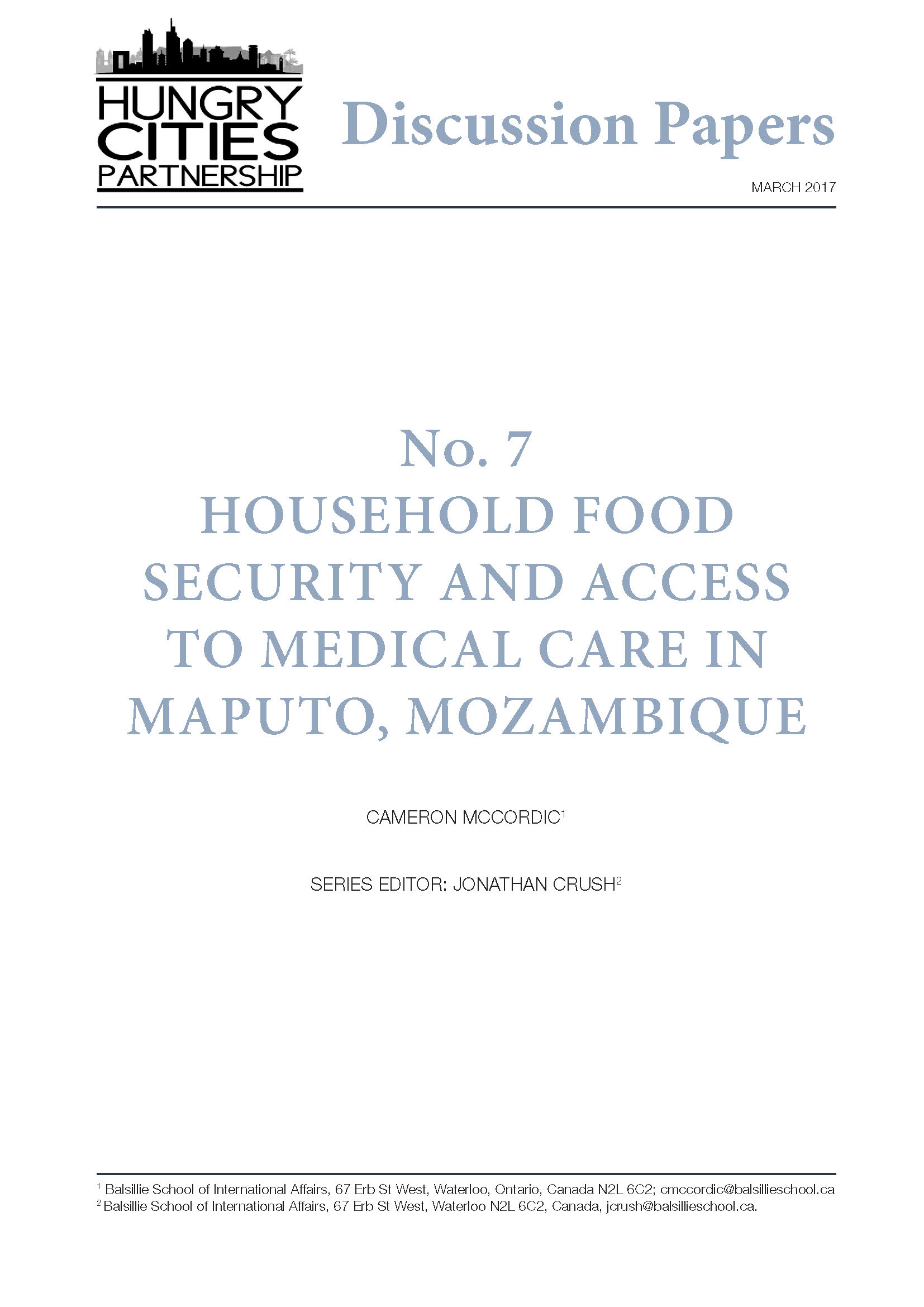The relationship between household access to medical care and food security is a potentially circuitous and challenging relationship to model. This discussion paper uses multiple modelling techniques to determine the quality of the relationships between these variables using household survey data collected by the Hungry Cities Partnership in 2014 in Maputo, Mozambique. The results of the investigation are framed according to the Sustainable Livelihood Framework and indicate a predictive relationship between household food security status and consistent household medical care access among the sampled households. The results also identify potential conditional independence in the relationship between other demographic variables and these two dependent variables among the surveyed households.

